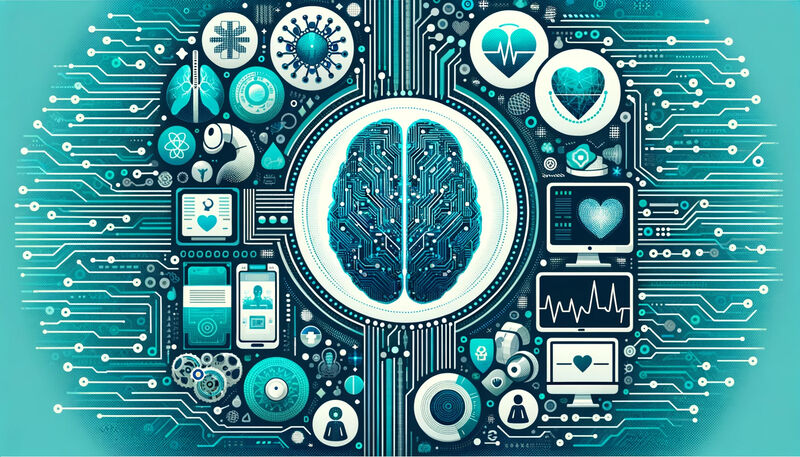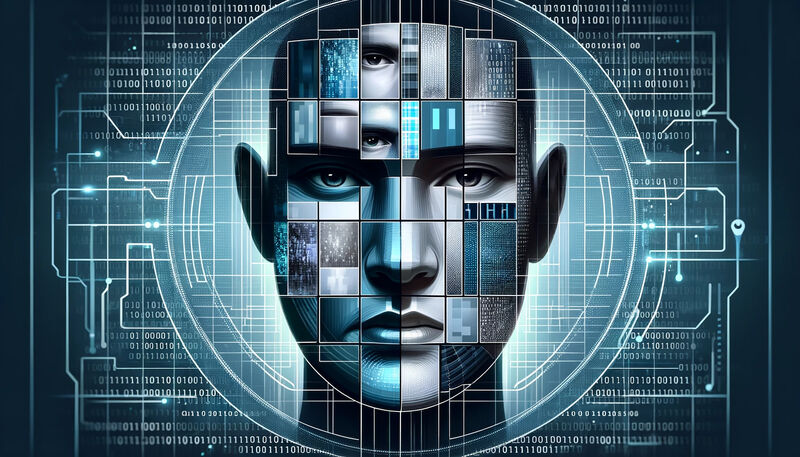AI in Healthcare: Revolutionizing Diagnosis and Patient Care with Machine Learning

The integration of Artificial Intelligence (AI) into healthcare is transforming the landscape of medical diagnosis and patient care, offering a new era of precision medicine and innovative treatment strategies. At the forefront of this revolution is machine learning (ML), a subset of AI that enables computer systems to learn from and interpret data without explicit programming. This article explores how AI and ML are redefining healthcare, from enhancing diagnostic accuracy to personalizing patient care.
Revolutionizing Diagnostics
One of the most significant impacts of AI in healthcare is in diagnostics. Machine learning algorithms can analyze vast amounts of medical data, such as images from MRIs, CT scans, and X-rays, with higher accuracy and speed than human practitioners. For example, AI systems have been developed to detect diseases such as cancer, diabetic retinopathy, and Alzheimer's disease in their early stages, when treatment can be most effective.
- Cancer Detection: AI algorithms can identify subtle patterns in imaging data that may be indicative of cancer, often detecting tumors earlier than traditional methods.
- Diabetic Retinopathy: By analyzing retinal images, AI systems can diagnose this diabetes-related eye condition early, preventing vision loss.
- Alzheimer's Disease: Machine learning models can identify early signs of Alzheimer's by analyzing speech patterns and brain imaging, offering the potential for earlier intervention.
Personalizing Patient Care
AI is also making strides in personalizing patient care. By analyzing data from electronic health records, wearable devices, and genetic information, AI systems can tailor treatment plans to individual patients, improving outcomes and reducing side effects.
- Predictive Analytics: AI can predict which patients are at risk of developing certain conditions, allowing for preventative measures to be taken before the condition manifests.
- Treatment Recommendations: Machine learning algorithms can sift through data from clinical trials and medical literature to recommend the most effective treatments for specific patient profiles.
- Drug Development: AI is accelerating the drug discovery process by predicting how different compounds will behave and how likely they are to make effective medications.
Challenges and Ethical Considerations
Despite its potential, the integration of AI into healthcare is not without challenges. Issues of data privacy, security, and the need for robust datasets that represent diverse populations are paramount. Additionally, there are ethical considerations regarding the reliance on AI for medical decisions, including the need for transparency in how AI systems make recommendations and ensuring accountability for medical outcomes.
- Data Privacy: Protecting patient data in an era where vast amounts of information are processed by AI systems is critical.
- Bias in AI Models: Ensuring that AI systems are trained on diverse datasets to prevent biases that could lead to disparities in patient care.
- Explainability: Developing AI systems that provide explanations for their recommendations to ensure trust and confidence among healthcare providers and patients.
The Future of AI in Healthcare
As technology advances, the potential for AI in healthcare continues to expand. Future developments could include more sophisticated predictive models for complex diseases, AI-powered robots assisting in surgeries, and virtual health assistants providing 24/7 care management.
The successful integration of AI into healthcare will require collaboration among technologists, clinicians, patients, and policymakers. Together, they can address the ethical and logistical challenges of implementing AI, ensuring that this powerful technology fulfills its promise to revolutionize healthcare, making it more accurate, efficient, and personalized than ever before.
In conclusion, AI and machine learning are at the cusp of transforming healthcare, offering the potential to save lives, reduce costs, and ensure a higher quality of care for patients worldwide. As we navigate this exciting frontier, it is crucial to proceed with careful consideration of the ethical implications, working collaboratively to harness AI's full potential in the service of human health.

